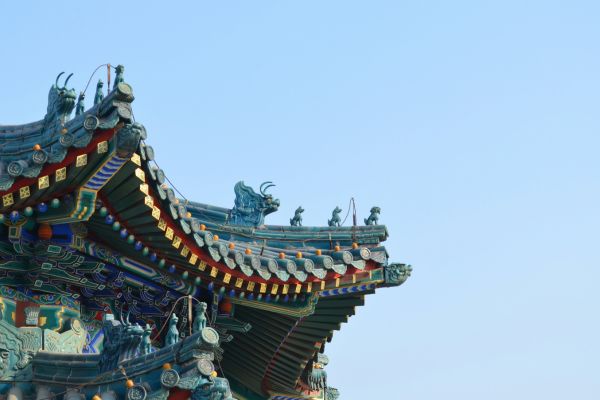
Key takeaways:
- Since 2014, Land Rover has been claiming that Jiangling’s Lufeng X7 copied the design of Range Rover Evoque and has launched a series of legal actions against Jiangling.
- In May 2021, Beijing Intellectual Property Court issued the final judgments, confirming that Jiangling had committed acts of infringement by engaging in unfair competition.
In the final judgment rendered in May 2021, a Chinese Court found that Jiangling Motors Co., Ltd. engaged in unfair competition by producing and selling Lufeng X7 which was similar to Land Rover’s Range Rover Evoque.
The case involved appeals by the plaintiff Jaguar Land Rover Ltd. (“Land Rover”) and the defendant Jiangling Holdings Co., Ltd. (“Jiangling”).
Land Rover developed the Range Rover Evoque, which has a worldwide reputation. Jiangling developed the Lufeng X7, which is also a popular product in China.
Since 2014, Land Rover has been claiming that Jiangling’s Lufeng X7 copied the design of Range Rover Evoque and has launched a series of legal actions against Jiangling.
The Beijing Intellectual Property Court issued a final judgment in the case, confirming that Jiangling had committed acts of infringement.
1. Case background
In 2016, Land Rover filed an anti-unfair competition lawsuit with the Beijing Chaoyang District People’s Court (“Chaoyang Court”).
In the lawsuit, Land Rover argued that Jiangling’s Lufeng X7 was visually indistinguishable from the Range Rover Evoque model, which could easily result in consumer confusion and thus cause great damage to Jaguar Land Rover. The production, sales, and marketing of the Lufeng X7 model by Jiangling and its sales company constituted an act of unfair competition of using the same or similar logo with Land Rover’s influential decoration without authorization.
Accordingly, Land Rover requested Jiangling and its sales company to immediately stop the production, display, pre-sale, and sale of the Lufeng X7 model, and compensate 1.5 million CNY.
In the meanwhile, Land Rover also filed a copyright infringement lawsuit with Beijing Chaoyang District People’s Court on the same grounds, arguing that Jiangling’s Lufeng X7 model infringed its copyright.
In 2019, the Chaoyang Court issued the first instance judgments separately on the anti-unfair competition case and the copyright infringement case. In the anti-unfair competition case, the Chaoyang Court upheld Land Rover’s claim, and its decision can be found in the civil judgment “(2015) Chao Min Chu No.10383” ((2015)朝民初10383号). In the meantime, the Chaoyang Court rejected Land Rover’s claim in the copyright infringement case, and its decision can be found in the civil judgment “(2015) Chao Min Chu No. 10384” ((2015)朝民初10384号).
In the anti-unfair competition case, the Chaoyang Court upheld Land Rover’s claim on the ground that Jiangling operating Lufeng X7 constituted an act of unfair competition by using the same or similar logo as others’ influential decoration without authorization, which caused confusion in the market and damaged the legitimate interests and business reputation of Jaguar Land Rover. (See the civil judgment (2015) Chao Min Chu No. 10383 ((2015)朝民初10383号))
In the case of copyright infringement, the Chaoyang Court rejected Land Rover’s claim and held that the appearance of the “Range Rover Evoque” model did not reach the level of artistic creation required for an artwork, and lacked originality, so it did not belong to an artwork; nor did it belong to the work of applied art, and thus it could not claim copyright. (See the civil judgment “(2015) Chao Min Chu No. 10384” ((2015)朝民初10384号))
Thereafter, Jiangling appealed the anti-unfair competition case, while Land Rover appealed the copyright infringement case.
In 2021, the Beijing Intellectual Property Court issued the second instance (the final) judgments of the two aforementioned cases, rejecting the appeals and upholding the judgments of the court of the first instance. For the second instance judgment in the anti-unfair competition case, please refer to the civil judgment “(2019) Jing 73 Min Zhong No. 2033” ((2019)京73民终2033号); for the second instance judgment in the copyright infringement case, please refer to the civil judgment “(2019) Jing 73 Min Zhong No.2034” ((2019)京73民终2034号).
II. Court views
In the anti-unfair competition case, the court of the second instance held that the “Range Rover Evoque” was already distinctive and had established a stable market link with Land Rover. The “Range Rover Evoque” was widely advertised and promoted, and its shape decorations had gained certain popularity and influence in China. Jiangling’s use of the Lufeng X7 car was sufficient to cause consumer confusion between itself and Range Rover Evoque. The court of the second instance upheld the view of the court of first instance that Jiangling had constituted unfair competition.
In the case of commit acts of infringement, Land Rover insisted in the second instance that the “Range Rover Evoque” was an artwork under the Chinese Copyright Law. The court of the second instance agreed with the court of the first instance that the appearance of the Range Rover Evoque did not meet the standard of originality required for an artwork, and therefore did not constitute an artwork.
III. Our comments
The automobile design dispute in Land Rover v. Jiangling has received considerable national and international media. Both models are hot sellers in China and thus have generated widespread interest among the consumer community.
The copy of design patents is one of the most common types of IP infringement and is the most likely to cause consumer confusion. International companies that encounter similar infringement in China can refer to Land Rover v. Jiangling and resort to Chinese courts in a similar way.
Photo by Bangyu Wang on Unsplash
Contributors: Guodong Du 杜国栋









